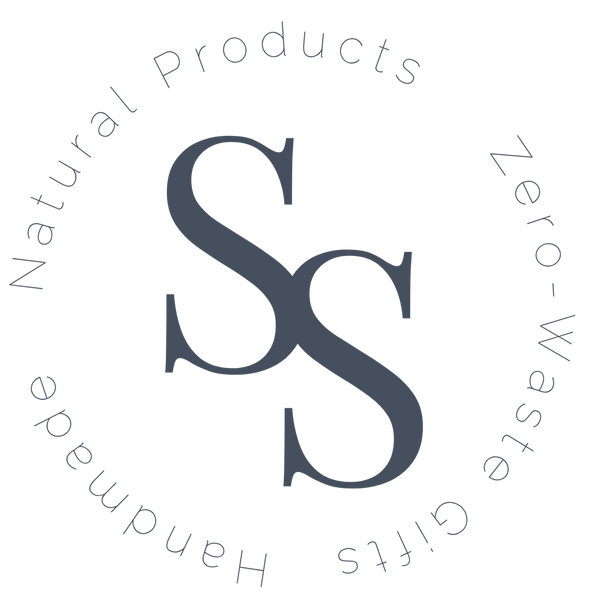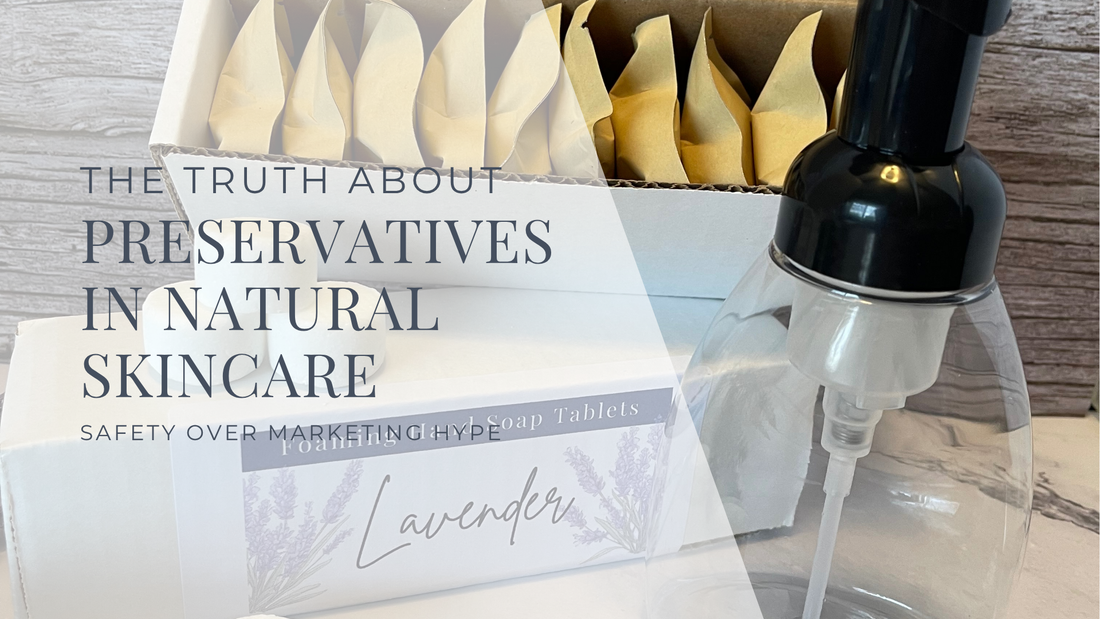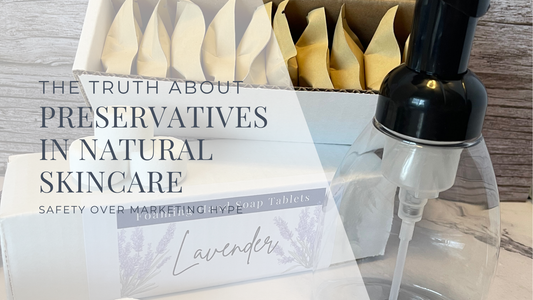Why the "Preservative-Free" Label Might Be Putting Your Skin at Risk
If you've been reading ingredient labels (and let's be honest, who hasn't turned into "that person" at the store?), preservatives probably give you pause.
I get it. You've made the switch to cleaner living because you're tired of playing ingredient detective. You want products that work and align with your values—not corporate greenwashing wrapped in a pretty package.
But here's the truth nobody's talking about: the biggest myth in natural skincare isn't that preservatives are dangerous.
It's that going without them is somehow safer.
What Preservatives Actually Do (And Why You Need Them)
Here's what happens when water meets bacteria: growth. Mold. Contamination you can't always see or smell.
Any skincare product containing water needs preservatives to prevent harmful bacterial, yeast, and mold growth. Without them, products can become unsafe within days of opening due to contamination.
Think about it: every time you dip wet fingers into that gorgeous sugar scrub, you're introducing moisture. And moisture creates the perfect breeding ground for microorganisms.
Preservatives stop that from happening. They protect both your product and you.
When Preservatives Are Non-Negotiable (And When They're Not)
Oil-only products like balms or lotion bars? Usually fine without preservatives. Bacteria can't grow in anhydrous (water-free) formulations made purely of oils, butters, and waxes.
Water-based products like liquid soaps, scrubs, or creams? They absolutely need preservation. Even products that come into contact with water during use (like that jar of scrub in your shower or foaming hand soap tablets) need protection.
Wet fingers can introduce water to formulations, creating opportunities for microbial growth if no preservative is present.
At Sea Spray Soap, every water-containing formula uses carefully selected preservation systems. Not because it's trendy, because it's responsible.
The Real Problem: It's Not Preservatives, It's the Wrong Ones
Let's be clear: not all preservatives are created equal.
Older synthetic preservatives like parabens and formaldehyde-releasing agents have raised legitimate concerns about hormone disruption and skin sensitivity.
But modern alternatives? They're designed specifically for natural formulations with proven safety profiles.
It's like comparing processed food preservatives to the salt you use to preserve homemade jam. Same purpose, completely different approach.
The Preservative System We Use (And Why)
At Sea Spray Soap, I use one preservation system exclusively: Phenoxyethanol + Caprylyl Glycol.
After years of formulation testing, this is the system that checks every box:
- Paraben-free and formaldehyde-free - No hormone disruptors or sensitizers
- Gentle enough for sensitive skin - Approved by global safety authorities at 1% or less
- Broad-spectrum protection - Fights bacteria, yeast, and mold effectively
- Eco-friendly - Biodegradable and sustainably sourced
- Effective at low concentrations - Works without overloading formulations
Scientific research and regulatory agencies worldwide have deemed this combination safe for cosmetic use. It's one of the most thoroughly tested preservation systems available for natural skincare.
And here's the thing: I only use it where it's actually needed.
Why "Preservative-Free" Can Be Riskier Than You Think
In the rush toward "clean beauty," something got lost: actual product safety.
Formulas without preservatives aren't stable and can start growing microbes and harmful bacteria shortly after opening. A contaminated scrub isn't more natural—it's just risky.
And here's what really matters: without preservatives, most skincare products would last mere days and could develop bacteria and mold that may lead to skin infections.
You deserve better than choosing between your values and your safety.
What This Means for You
If you've been avoiding all preservatives because you thought that's what "natural" meant, you're not alone. The wellness industry has done a great job making us second-guess everything.
But intention without information just creates overwhelm.
Understanding when and why preservatives are used means you can confidently choose products that care for both your skin and your wellbeing—without the guilt or guesswork.
Natural should mean safe, effective, and transparent. Not just another marketing buzzword designed to make you feel like you need a chemistry degree to buy soap.
The Bottom Line: Honest Formulation Over Fear-Based Marketing
I could tell you every Sea Spray Soap product is "100% preservative-free" and watch sales soar.
But that would be dishonest, and potentially dangerous.
Instead, I'm choosing transparency: When water is present, preservation is present. When it's needed, it's there. When it's not, it isn't.
Because you don't need another brand making empty promises. You need products formulated with both safety and integrity, by someone who's been where you are and gets it.
Ready to simplify your skincare routine with products that prioritize both safety and transparency?
Shop our Foaming Sugar Scrub (perfectly preserved for shower use) or our Foaming Hand Soap Collection, formulated with the same honest approach to clean beauty you've been looking for.
Questions about ingredients or formulation? Drop them in the comments below, I read every single one.




